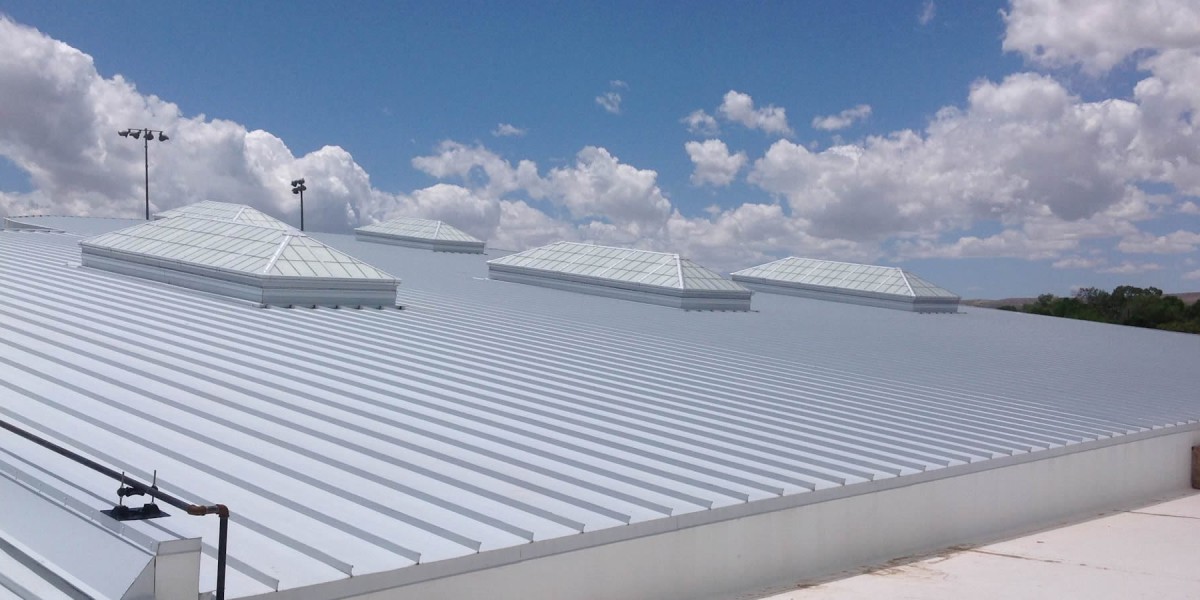Boston's diverse climate, marked by hot summers and cold winters, poses unique challenges for maintaining energy efficiency and managing operational costs in commercial buildings. One innovative solution that is gaining traction is reflective roofing. Reflective roofing materials offer a myriad of benefits, from reducing cooling costs to enhancing overall energy efficiency. In this blog, we will explore the advantages of reflective for commercial roofing in Boston, MA, and highlight why this is an excellent choice for business owners.
What is Reflective Roofing?
Reflective roofing, also known as cool roofing, involves the use of materials designed to reflect more sunlight and absorb less heat than standard roofing products. These materials are typically light in color and include coatings, membranes, tiles, and shingles that reflect solar radiation. By reflecting a significant portion of the sun's energy, reflective roofs help to keep buildings cooler and reduce the need for air conditioning.
Advantages of Reflective Roofing for Commercial Buildings in Boston
Reduced Cooling Costs
One of the primary benefits of reflective roofing is the reduction in cooling costs. During Boston's hot summer months, traditional dark roofs can absorb a considerable amount of heat, increasing indoor temperatures and forcing air conditioning systems to work harder. Reflective roofs, however, maintain lower indoor temperatures by reflecting solar radiation, which can significantly reduce the need for air conditioning and lead to substantial energy savings.
Reflective roofing can reduce a building's energy use by up to 15%, depending on factors such as the building's location, the type of reflective material used, and the building's overall energy efficiency. This reduction in energy use translates to lower utility bills, which is a significant benefit for any business.
Improved Energy Efficiency
Reflective roofing materials play a crucial role in enhancing the overall energy efficiency of commercial buildings. By reducing the amount of heat that enters the building, these roofs decrease the demand on HVAC systems. This not only lowers energy consumption but also extends the lifespan of the cooling equipment, leading to additional cost savings over time. In a city like Boston, where energy costs can be high, improving energy efficiency is a vital consideration for commercial building owners.
Energy efficiency is further enhanced by the ability of reflective roofs to reduce the peak cooling load. This means that during the hottest part of the day, when energy demand is highest, the building's cooling system does not have to work as hard. This can help to prevent power outages and reduce the overall strain on the energy grid.
Enhanced Indoor Comfort
Maintaining a comfortable indoor environment is essential for the productivity and well-being of employees and occupants in commercial buildings. Reflective roofs help stabilize indoor temperatures, preventing the hot and cold spots that often occur with traditional roofing materials. This consistent indoor climate enhances comfort levels, making it easier to maintain a productive and pleasant working environment throughout the year.
In addition to stabilizing indoor temperatures, reflective roofs can also improve indoor air quality. By reducing the need for air conditioning, reflective roofs can decrease the amount of dust and allergens that are circulated throughout the building. This can lead to a healthier and more comfortable environment for employees and occupants.
Environmental Benefits
Reflective roofing contributes to environmental sustainability by mitigating the urban heat island effect—a phenomenon where urban areas experience higher temperatures than rural areas due to human activities and the concentration of buildings and infrastructure. By reflecting sunlight and reducing heat absorption, reflective roofs help lower ambient temperatures in urban areas like Boston. This not only improves local air quality but also reduces the overall demand for energy, thereby decreasing greenhouse gas emissions.
Reducing the urban heat island effect can also have a positive impact on public health. Higher temperatures in urban areas can exacerbate health problems such as heat stroke and respiratory issues. By helping to lower ambient temperatures, reflective roofs can contribute to a healthier and more livable urban environment.
Longer Roof Lifespan
The intense heat absorbed by traditional roofing materials can cause thermal expansion and contraction, leading to wear and tear over time. Reflective roofing materials, by minimizing temperature fluctuations, can extend the lifespan of the roof. This durability is particularly advantageous in Boston's climate, where buildings must withstand both summer heat and winter cold. A longer-lasting roof reduces the need for frequent repairs and replacements, providing long-term cost savings for commercial building owners.
A longer roof lifespan also means less material waste. By reducing the need for frequent roof replacements, reflective roofs can help to decrease the amount of roofing material that ends up in landfills. This is an important consideration for any business looking to reduce its environmental footprint.
Increased Property Value
Investing in energy-efficient and sustainable building features like reflective roofing can enhance the overall value of a commercial property. Prospective buyers and tenants increasingly prioritize energy efficiency and environmental responsibility when selecting properties. A building equipped with reflective roofing demonstrates a commitment to these values, making it more attractive in the competitive Boston real estate market.
In addition to increasing property value, reflective roofs can also make a property more attractive to tenants. Many businesses are looking for ways to reduce their energy costs and environmental impact, and a building with reflective roofing can offer a significant advantage in this regard.
Choosing the Right Reflective Roofing Materials
When selecting reflective roofing materials for your commercial building in Boston, it’s essential to consider factors such as material type, installation process, and overall performance. Here are some common options:
- Reflective Coatings: These can be applied to existing roofs to enhance their reflectivity. They are a cost-effective way to upgrade your roof without complete replacement.
- Single-Ply Membranes: Materials like TPO (thermoplastic olefin) and PVC (polyvinyl chloride) are naturally reflective and provide excellent durability and energy efficiency.
- Metal Roofing: Light-colored or coated metal roofs offer high reflectivity and can be an attractive and durable option for commercial buildings.
- Reflective Shingles: These shingles are designed with reflective granules to reduce heat absorption, combining the aesthetic appeal of traditional shingles with the benefits of reflective roofing.
Finding the Right Contractor
To maximize the benefits of reflective roofing, it's crucial to work with experienced and reputable commercial roofing Contractor. Here are some tips for selecting the right contractor for your project:
- Check Credentials: Ensure the contractor is licensed, insured, and has a proven track record in commercial roofing Boston MA.
- Experience with Reflective Roofing: Choose contractors who specialize in or have significant experience with reflective roofing materials and installations.
- Customer Reviews and References: Look for contractors with positive reviews and ask for references from past clients to gauge their reliability and quality of work.
- Detailed Estimates: Obtain comprehensive estimates that outline the scope of work, materials, costs, and project timeline to avoid any surprises.
Conclusion
Reflective roofing offers numerous advantages for commercial buildings in Boston, from reducing cooling costs and improving energy efficiency to enhancing indoor comfort and contributing to environmental sustainability. By investing in reflective roofing materials and working with experienced commercial building roofers, Boston business owners can achieve significant long-term savings and create a more sustainable and comfortable environment for their occupants.
As Boston continues to grow and evolve, the demand for energy-efficient and sustainable building solutions will only increase. Reflective roofing stands out as a practical and impactful choice, providing both economic and environmental benefits that make it an essential consideration for any commercial property owner in the city. By choosing reflective roofing, you not only enhance the efficiency and value of your property but also contribute to a greener and more sustainable Boston.
If you're considering upgrading your commercial building's roof, consult with experienced commercial building roofers in Boston, MA, who can guide you through the process and help you select the best reflective roofing materials for your needs. Embrace the future of commercial roofing with reflective materials and enjoy the myriad benefits they offer for your business and the environment.



